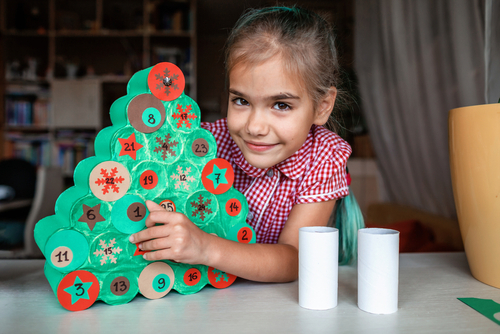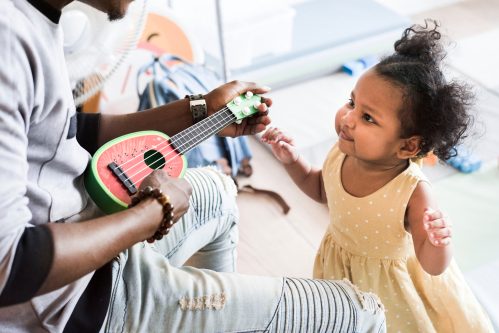They say that music is the universal language, with its unique ability to transcend boundaries. Anyone who has listened or played music would agree that it can evoke a range of feelings, spark memories or even connect people.
On 21 June, World Music Day is celebrated across the globe. It’s an excellent opportunity for early childhood educators to take the time to explore the power of music and understand the impact it can have on children’s development.
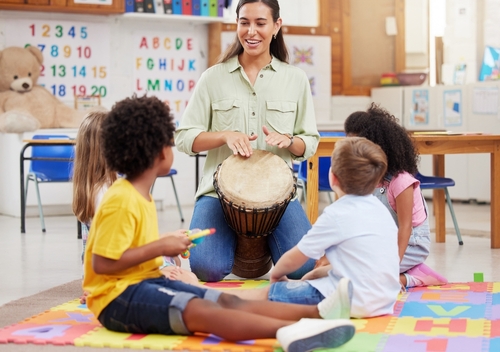
Music enhances children’s development
As well as simply being a whole lot of fun to listen to or participate in, music offers countless benefits for children. Integrating music into early childhood education settings can enable you to utilise this powerful tool.
Through our training at Practical Outcomes, we take care to empower educators to create meaningful and engaging learning experiences for children, and adding music can be a great way to enhance children’s development and wellbeing.
The benefits of music for children in early childhood education
So, what are the benefits that make music such an invaluable addition to early childhood education settings? Let’s take a look at four impressive ways that music can support your approach to giving children the very best start in life.
1. Boost brain development
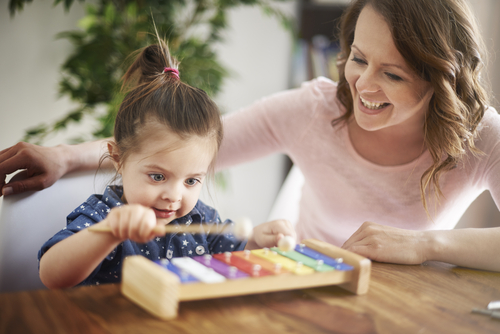
Early childhood is a critical period for cognitive development. In fact, the first five years are the period of life during which the most crucial brain development takes place.
Music can support growth during this stage by promoting a range of skills. Listening to music, singing, and playing instruments can enhance memory, attention, and problem-solving skills. Research suggests that musical experiences promote spatial-temporal skills, which are fundamental to mathematical and scientific thinking.
By introducing children to different musical elements, such as rhythm, melody and harmony, we can enhance their cognitive abilities and lay a strong foundation for future learning.
2. Language development via music

Music and language share a close relationship, and incorporating music into early childhood education can significantly enhance language and communication skills. Music is often enjoyed as song, opening up a world of story-telling, language and rhyme.
Singing nursery rhymes, learning songs with repetitive patterns and participating in musical activities promotes language development, vocabulary acquisition and fluency in speech. Best of all, it’s a highly engaging and fun way to achieve these!
3. Fostering collaboration and social skills
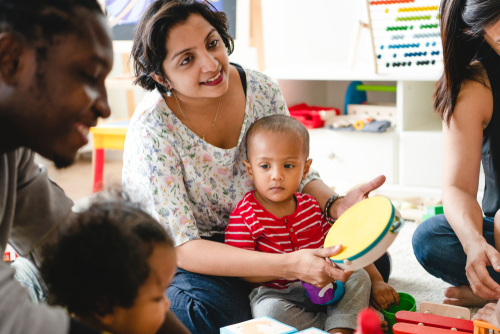
Music can be something enjoyed solo but it’s also great for involving a large group. Musical experiences like singing together, whether in harmony or taking turns, or playing a bunch of different instruments to create something special can bring about a sense of belonging.
Through music, we can encourage sharing, teamwork and show children what we can achieve when we work together.
4. Music for motor skills
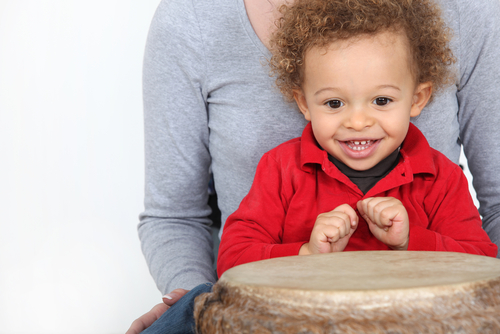
Music can be an impressive tool for promoting physical development and coordination in young children. Fine and gross motor skills are able to tapped into and developed through a range of music experiences, whether it’s dancing to the rhythm, playing instruments, or engaging in fingerplay songs. There are plenty of creative avenues you can explore musically to strengthen children’s motor skills, hand-eye coordination, and body awareness.
Supporting educators to make more music
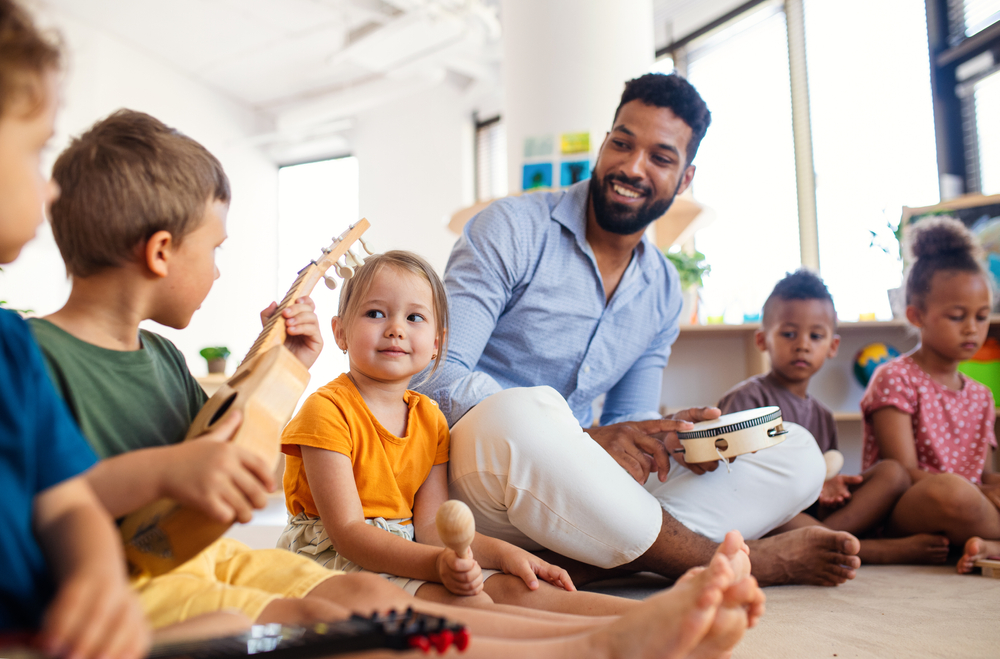
By providing comprehensive training, resources and support, the trainers here at Practical Outcomes aim to enable educators to create meaningful and engaging learning experiences that enhance children’s wellbeing and development.
Every educator, service and child can reap the rewards of more music in early childhood education. As we celebrate World Music Day, let’s reflect on these remarkable benefits of music and look at ways to add music into every day. After all, incorporating music into the curriculum supports a holistic approach to early childhood education, nurturing children’s cognitive, emotional and social development.
Get in touch today to find out how you can explore a career in early childhood education and make a difference in the lives of children.
